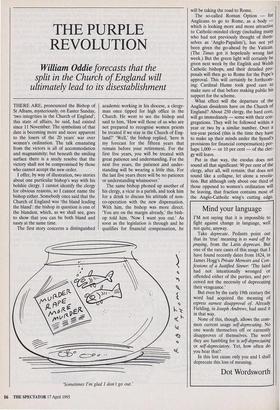Mind your language
I'M not saying that it is impossible to fight against change in language, well not quite, anyway.
Take deprecate. Pedants point out that its 'true' meaning is to ward off by praying, from the Latin deprecari. But one of the rare cases of this usage that I have found recently dates from 1824, in James Hogg's Private Memoirs and Con- fessions of a Justified Sinner 'The laird had not intentionally wronged or offended either of the parties, and per- ceived not the necessity of deprecating their vengeance.'
But even by the early 19th century the word had acquired the meaning of express earnest disapproval of. Already Fielding, in Joseph Andrews, had used it in that way.
None of this, though, allows the com- mon current usage self-deprecating. No one wards themselves off or earnestly disapproves of themselves. The word they are fumbling for is self-depreciating or self-depreciatory. Yet, how often do you hear that?
In this lost cause only you and I shall deprecate this loss of meaning.
Dot Wordsworth


















































 Previous page
Previous page